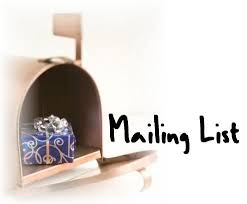 Entrepreneurs often work very long hours — particularly in the beginning stages of their business. You find yourself not only responsible for serving your customers, but all the stuff that goes on in the back office as well. You are doing the marketing, the accounting, you’re going to network events, etc. The work never ends. As a result, you may be thinking about shortcuts that will help you to get more done in less time. Marketing is often one of those things that can be systemized to save you time.
Entrepreneurs often work very long hours — particularly in the beginning stages of their business. You find yourself not only responsible for serving your customers, but all the stuff that goes on in the back office as well. You are doing the marketing, the accounting, you’re going to network events, etc. The work never ends. As a result, you may be thinking about shortcuts that will help you to get more done in less time. Marketing is often one of those things that can be systemized to save you time.
Your blog is a marketing tool that many healthy brands either love or hate. If you’re a prolific writer, blogging may be right up your alley. Non-writers would rather scoop their own eyeballs out with a melon baller than to write something that other people will read.
Blogging is an important marketing activity because it builds credibility and it helps potential paying customers find you during online searches. However, as an entrepreneur building your healthy brand, you may feel like using pre-written content — or PLR (private label rights) content — is the way to go.
What is PLR content?
PLR content is pre-written blog posts or articles that can be sold to business owners to use on their blog. The same content can be bought by anyone who has the money to pay for it. It’s sort of like going to Macy’s to shop for a blouse. You may purchase a blouse you like, however it doesn’t mean you have exclusive rights to that blouse. Others are free to purchase a copy of that same blouse in Macy’s stores all over the world.
Just say no to pre-written content
When it comes to content for your blog, you want to make sure that the content you use is original. Why? For starters, one of the purposes of a blog is to differentiate you from others who may do similar work as you. Second, each blog post you write is another opportunity for search engines to rank you using certain keywords and phrases. The better quality of the content, the higher your chances of being ranked on the first few pages of Google’s search function. How will Google know that your blog posts on liver detoxification are quality if you and 100 other coaches used the exact same blog posts?
If you absolutely need to use PLR content for your blog, you can use it to inspire your own original blog posts. Don’t just copy and paste the material and slap your name on it.
Alternatives to PLR content
My advice is to avoid PLR content for your blog at all costs. If you really want to have a successful blog, you have to make the space blogging in your marketing calendar. Some tips to help you find the time to blog are:
- Decide how often you want to blog. Once per week? Five times per week? What matters most is that you are consistent.
- Look for guest bloggers. If your blog has a bit of a following, you may be able to attract quality guest bloggers who can write relevant content for you during the times you are too busy to write something for yourself.
- Hire someone to write for you. Partner with a profesional writer who knows you and your business.
Have you ever used PLR content on your blog? What would make blogging on a regular basis easier for you?




